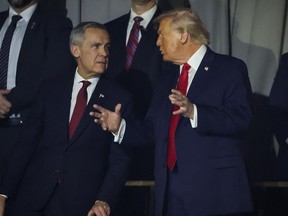Politics
Rising Political Violence in the U.S. Linked to Young Liberals

Political violence is becoming an alarming issue in the United States, with recent incidents highlighting a disturbing trend. In February, conservative activist Charlie Kirk was assassinated in Utah. Following this event, authorities arrested a man armed with incendiary devices outside a Washington, D.C. cathedral, frequented by Supreme Court justices. Additionally, a Texas man faced charges for allegedly threatening conservative figures, while a pardoned rioter from the January 6 insurrection was arrested for making similar threats against Hakeem Jeffries, the Democratic House Minority Leader. These incidents are part of a broader pattern of politically motivated violence that has raised concerns about the state of civil discourse in the nation.
Recent data suggests that the inclination toward violence as a political tool is significantly higher among younger, more liberal individuals. According to a report from the American Political Perspectives Survey (APPS), nearly half of the Gen Z political liberals surveyed, specifically 49 percent, agreed that “violence is often necessary to create social change.” This sentiment is echoed by 43 percent of Gen Z moderates and 40 percent of conservatives within the same age group. Among Millennials, the percentage of liberals supporting political violence stands at 44 percent, compared to 28 percent of moderates and 41 percent of conservatives.
Trends in Political Violence and Support
The rise of political violence is not solely a phenomenon from the past; recent analyses indicate an increase in support for violent measures across various demographic groups. A report by Daniel Byman and Riley McCabe from the Center for Strategic and International Studies (CSIS) highlights that, while leftist violence has seen a rise, it remains significantly lower than historical levels of violence associated with right-wing and jihadist groups. Notably, 2025 marks a pivotal shift, as left-wing attacks have outnumbered those from the far right for the first time in over three decades.
This shifting landscape is evidenced by recent polling data. An NPR/PBS News/Marist poll indicates that the number of Americans who believe violence may be necessary to achieve political goals has increased by 11 percentage points since April 2024, reaching 30 percent. Support for violence has grown across partisan lines, with 28 percent of Democrats now agreeing with this sentiment, up from just 12 percent 18 months prior. Among Republicans, support rose from 28 percent to 31 percent, while independents increased their support from 18 percent to 25 percent.
Educational Background and Political Identity
Interestingly, the data reveals a correlation between educational attainment and support for political violence. Forty percent of individuals with graduate degrees agree that violence is a necessary means for social change, compared to 26 percent of those with bachelor’s degrees and 20 percent among those with some college experience. Among respondents with a high school diploma or less, the figure stands at 23 percent.
Political identity also plays a significant role in these trends. The APPS data shows that those who identify as very liberal are the most likely to view political views as integral to their personal relationships. Approximately 67 percent of very liberal men and 56 percent of very liberal women expressed that they would only date someone who shares their political beliefs. In contrast, lower percentages were reported among very conservative individuals and moderates.
The growing acceptance of violence as a means of achieving political objectives poses a challenge for the future of political discourse in the United States. The notion of “assassination culture” has emerged, particularly among younger, ideologically driven individuals. A report from the Network Contagion Research Institute and Rutgers University found that over half of left-leaning respondents believed hypothetical acts of violence against high-profile figures, such as Donald Trump and Elon Musk, could be justified.
As political tensions continue to escalate, the implications of these findings suggest that the U.S. may be facing a turbulent period ahead. With a notable shift in the attitudes of younger generations toward violence as a political tool, the potential for further incidents looms large, raising questions about the future of political engagement and civil society in the country.
-

 Politics1 month ago
Politics1 month agoSecwepemc First Nation Seeks Aboriginal Title Over Kamloops Area
-

 World5 months ago
World5 months agoScientists Unearth Ancient Antarctic Ice to Unlock Climate Secrets
-

 Entertainment5 months ago
Entertainment5 months agoTrump and McCormick to Announce $70 Billion Energy Investments
-

 Lifestyle5 months ago
Lifestyle5 months agoTransLink Launches Food Truck Program to Boost Revenue in Vancouver
-

 Science5 months ago
Science5 months agoFour Astronauts Return to Earth After International Space Station Mission
-

 Lifestyle3 months ago
Lifestyle3 months agoManitoba’s Burger Champion Shines Again Amid Dining Innovations
-

 Technology4 months ago
Technology4 months agoApple Notes Enhances Functionality with Markdown Support in macOS 26
-

 Top Stories2 months ago
Top Stories2 months agoUrgent Update: Fatal Crash on Highway 99 Claims Life of Pitt Meadows Man
-

 Top Stories2 weeks ago
Top Stories2 weeks agoHomemade Houseboat ‘Neverlanding’ Captivates Lake Huron Voyagers
-

 Politics4 months ago
Politics4 months agoUkrainian Tennis Star Elina Svitolina Faces Death Threats Online
-

 Sports5 months ago
Sports5 months agoSearch Underway for Missing Hunter Amid Hokkaido Bear Emergency
-

 Politics5 months ago
Politics5 months agoCarney Engages First Nations Leaders at Development Law Summit





















